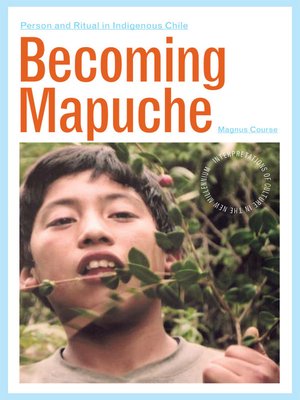Becoming Mapuche
ebook ∣ Person and Ritual in Indigenous Chile · Interp Culture New Millennium
By Magnus Course

Sign up to save your library
With an OverDrive account, you can save your favorite libraries for at-a-glance information about availability. Find out more about OverDrive accounts.
Find this title in Libby, the library reading app by OverDrive.



Search for a digital library with this title
Title found at these libraries:
| Library Name | Distance |
|---|---|
| Loading... |
"In Becoming Mapuche, Magnus Course asks a question at once anthropological and Mapuche: what does it mean to be a 'true person'? On a theoretical level, this question allows the author to skillfully traverse back and forth across the abandoned terrain between the categories of classical modernist anthropology and those of its postmodern critique. In choosing this analytical strategy, the author has produced a remarkably rich ethnography of a rural Mapuche community, one that touches on the themes of both phases of anthropological thought in a rich synthesis of themes. Further, in finding this systhesis, Course has surely begun to fulfill his own hope expressed herein, that of freeing Mapuche ethnography from its sub-disciplinary isolation and showing the way to comparisons with Andean and Amazonian societies and far beyond."—Peter Gow, author of An Amazonian Myth and Its History
"An insightful ethnographic account of the way the rural Mapuche person is constituted through different modes of men's sociality and how the centrifugal expansion of relations across time and space gives rise to collective social events. Course presents the stunning new political possibilities that emerge from a rural Mapuche class-based identity that challenges the ethnic perspectives held by urban Mapuche intellectuals and indigenous rights activists."—Ana Mariella Bacigalupo, author of Shamans of the Foye Tree: Gender, Power, and Healing among Chilean Mapuche
|Magnus Course is a lecturer in social anthropology at the University of Edinburgh.







